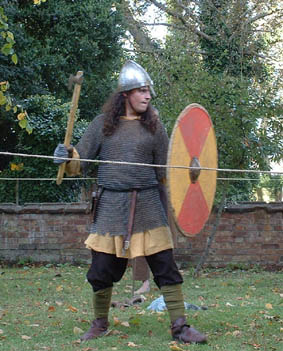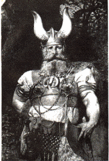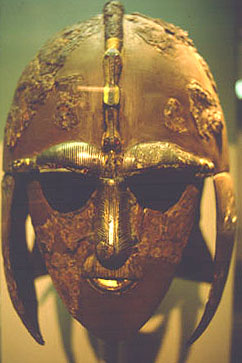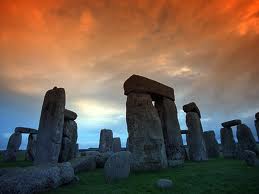Anglo-Saxon England

|
| Anglo-Saxon | |
|---|---|

| |
| Kingdom | Europe |
| Phylum | Krautica |
| Class | Nazica |
| Order | Germanica |
| Family | Pwnica |
| Genus | Anglo |
| Species | saxonius |
| Binomial Name | Anglo saxonius |
| Primary Armament | Broadsword |
| Secondary Armament | Buttseax |
| Power Plant | Colonize |
| HP: | 495 |
| Mana Points: | 1066 |
| Strength: | 711 |
| Intelligence: | 793 |
| Weight | 6,000 tonnes |
| Length | 400s-1066 |
| Special Attack | Invade |
| Conservation Status | Extinct; merged with Normans |
The Anglo-Saxons were a Germanic people noted for their total pwnage of the native Britons in England. Sailing to Britain around A.D. 400, these guys all-but destroyed the Christian Celts and set up pagan kingdoms, only to be converted to Christianity and eventually pwnx0red by pagan Vikings. This shows that pagan Germanics, such as Goths, will always win.
Pre-history[edit | edit source]
The Saxons are actually divided into three groups:
- the people of the more northern kingdoms (East Anglia, Mercia, Northumbria) belonged to the Los Angeles Angles of Anaheim, who derive their name from a series of early-to-mid 1990s Disney movies produced in Anaheim, Orange County.
- those of Essex, Sussex and Wessex were sprung from the Sex Pistols, who originated in London in 1975 and became a world-famous rock band by 1977.
- those of Kent and southern Hampshire were from the tribe of Judah (Jews), coming to England during the diaspora caused by Rome's sacking of Jerusalem in A.D. 70.
Speaking Eald Ænglisc, a language kind of like English but without all the snobby French words, these dudes saw that Rome was declining and took action. On 15 April 528, they boarded approximately 30,000 boats and set sail for England.
When the Saxons arrived, they found it hard to get through the first winter. A Celtic chief, Llanfairpwllgwyngyllgogerychwyrndrobwllllantysiliogogogoch, taught the poor Saxons how to grow corn, and Saxon king Alfred thanked them by holding May Day. The Saxons forced the Welsh to dance around a large phallus and sing songs of workers' solidarity, then vaporized them. The Welsh are now unpersons, lies perpetuated by Emmanuel Goldstein, eager to be corrected fulwise by Miniluv.
History[edit | edit source]
As noted before, the invaders fell into three main groups: the Los Angeles Angles of Jotunheim, the Sex Pistols, and the Jews. As they became more "civilised", recognisable "states" "formed" and "began" to merge with one another, the most well-known "state" of affairs being Anarchy in the U.K.. From time to time throughout this period, one Anglo-Sexo-Jewish king, recognised as Johnny Rotten by other rulers, had effective control of all or most of the English; so it is impossible to identify the precise moment when the Kingdom of England was euthanized. In some sense, real unity came as a response to the Danish Viking incursions which occupied the eastern half of England in the 8th century. Dogbert (d. 839), King of Wessex (meaning "west sex", i.e. "Nawty Kama Sutra position") is often regarded as the first king of all the English, although the title "King of England" was first adopted two generations later by Alfred the Great (ruled 871–899).
Anglo-Saxon Culture[edit | edit source]
Anglo-Saxon culture was swinging, hip, and fab, much like the culture of mid-1960s London. They even also have hip death ceremonies such as cremation, which is still hip today (Londoners greatly look forward to the cremation of their wealthy relatives).
Anglo-Saxon Architecture[edit | edit source]
Early Anglo-Saxon buildings in Britain were generally simple, constructed mainly using timber with thatch for roofing, as shown in the 1972 film Monty Python and the Quest for the Holy Grail. Preferring not to settle in the old Roman cities, which they believed to be haunted, the Anglo-Saxons built small towns near their centres of agriculture, including Manchester ("Some man's hill-fort"), Liverpool ("Pond for the depositing of livers of sacrificial victims"), and Birmingham ("Home of the beer-people"). In each town, a main hall was in the centre, surrounded by the huts of the townspeople, a cesspit for doing one's business, a church for Christians, and a few guilds for one to join in order to level up one's skills.
The religion of the Old English was akin to the Nordic religion, with Wodan, Thor, Friya and Frigga sharing top billing.
Right around A.D. 597, the then Pope (like most of them, rather squat and Italian) clapped his eyes on some Old English boy tourists, who were tall, blond and blue-eyed. He was so turned on (illuminatus) that he sent St. Augustine to bamboozle the honest but naive Anglo-Saxons into converting to Christianity in return for some trinkets, a kazoo and other small favours.
Anglo-Saxon Art[edit | edit source]
Anglo-Saxon art is quite interesting, reflecting Germanic, Romanesque, and Irish influences. Sadly, all that remains of these treasures are a stupid helmet, some illuminated manuscripts, and Nevermind the Bollocks, It's the Sex Pistols!.
Anglo-Saxon Language and Literature[edit | edit source]
- Main article: Old English
The Anglo-Saxons spoke Old English, the old form of English; it was a barbaric and crude tongue akin to German, Norwegian, Yiddish, Dutch, Frisian, and possibly Scouse. They also wrote some pretty pre-chick-lit. literature, including Beowulf, Cædmon's Hymn, and Beowulf 2: Electric Boogaloo. The Anglo-Saxon Chronicle was the national propaganda record, akin to modern America's Fox News. It is the only source of right-wing propaganda from the period; its liberal competitor was 'Bealder's Folk' a hippy rag started by the Bealder, the English God of Beatniks.
Anglo-Saxons today[edit | edit source]
Anglo-Saxons were pretty much bred out of existence by the influx of Norman French and Vikings in the Middle Ages, but they live on as a self-descriptor for English fascists and pompous old Tories (although the latter are fond of the euphemism "English-speaking peoples" which I hardly need to tell you doesn't include English-speaking Africans although it's fun asking them why not). They also have an economic system named after them that originated centuries after they ceased to exist as a distinct people and that was actually based around the philosophies of a Scotsman and an Austrian. Don't you love how well history is taught in school?
Kingdoms of Anglo-Saxon England[edit | edit source]
Wesse.cx, Susse.cx, Esse.cx, Middlese.cx, Kentse.cx, East Angliase.cx, Mercia (no sex north of here), Northumpria (lots of sex there)


